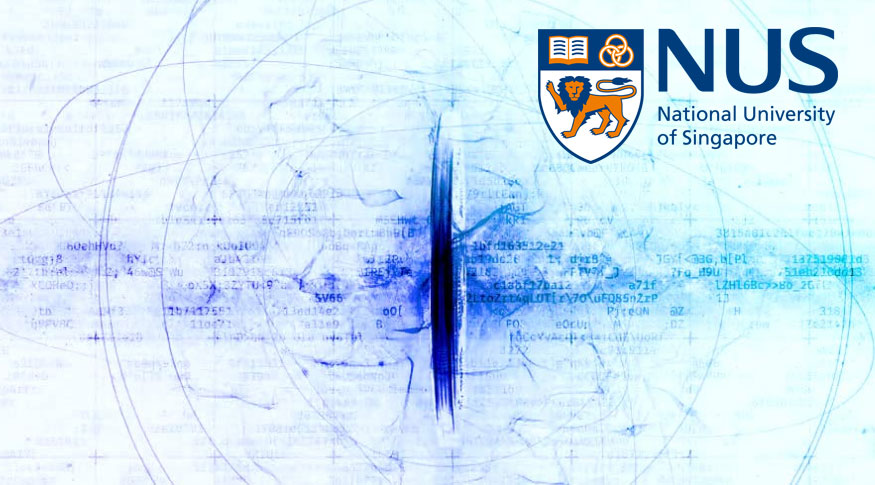The National University of Singapore (NUS) School of Computing today announced the creation of the CRYSTAL (Cryptocurrency Strategy, Techniques, and Algorithms) Centre, an academic research laboratory and think tank aiming to lead as one of the world’s foremost centres for research on blockchains. Assistant Professor Prateek Saxena and Associate Professor Keith Carter, who are from the Department of Computer Science and Department of Information Systems and Analytics at NUS Computing respectively, will co-direct the Centre.
The CRYSTAL Centre, founded by NUS Computing faculty members, has a goal of providing scientific clarity in shaping technical ideas in the blockchain and cryptocurrency space. The team of experts has been responsible for several academically grounded spin-offs over the last two years in the blockchain ecosystem.
The CRYSTAL Centre, located at NUS Computing, will initially comprise between 5 and 10 faculty members and several scholars working in different research sub-areas. This includes experts in program language design and verification (Asst Prof Aquinas Hobor and Asst Prof Ilya Sergey), distributed computing algorithms (Assoc Prof Haifeng Yu), security (Asst Prof Min Suk Kang and Asst Prof Prateek Saxena), and market economics (Assoc Prof Keith Carter). The Centre will conduct research on scalable consensus protocols, verification and testing techniques, privacy-preserving computation, safe programming language design, blockchain applications, fundamentals of trading cryptocurrency, analysis of cryptocurrency economics, and highly available peer-to-peer (P2P) network designs. These topics touch on many challenges that the blockchain and cryptocurrency space currently faces.
“We hope to make debates in the community more scientifically-grounded. The goal is to improve interaction between those armed with intuition and those with scientific rigour. We also hope to draw attention to unforeseen scientific challenges, both near-term and long-term,” said Asst Prof Saxena.
The CRYSTAL Centre will engage in productive interaction with the industry to draw up new research problems and propose solutions to them. The research centre also plans to host a series of structured events to facilitate interaction with the wider community. An annual workshop with three tracks – including technical research, business and entrepreneurship – is under works.
Dr Loi Luu, CEO of Kyber Network, said, “We at Kyber Network understand the importance of building secure blockchain systems that will eventually make great social and academic impact. There are still several key technical challenges for blockchain to achieve mainstream adoption, and the CRYSTAL Centre is in one of the best positions to facilitate this.”
In all, the Centre hopes to foster an open/public technical community of thought leaders and experts in the blockchain space, all working to further the ideation in blockchain research globally. In April 2018, the team created the Blockchain Technical Reading Group in Singapore as the first step towards bringing attention to important technical topics. One take away from the reading group was that there is a gap in the understanding of security underpinning current blockchain designs. The CRYSTAL Centre will work to close this gap through collaborative research.
Mr Frank Xiang Wang of the X-Order Institute, said, “CRYSTAL Centre is one of the first labs in the world that focuses on both the technological side and the economic side of public blockchain. We look forward to the many discoveries and projects that will come out of it in the future.”Previous research from the CRYSTAL Centre founding team has led to leading companies in the blockchain and cryptocurrency space, including high throughput blockchain platform Zilliqa, on-chain liquidity protocol Kyber Network, enterprise blockchain company Anquan, and the scalability solution for smart contracts called TrueBit.
The original research for Zilliqa, for example, was performed in the lab of Asst Prof Saxena and published in a research paper in 2015. Zilliqa, which aims to solve the issue of scalability and poor security in current blockchain platforms, has since grown into a team of leading blockchain developers and entrepreneurs from around the world and has emerged as one of the leading platforms to host the next generation of decentralised smart contract applications.
Dr Xinshu Dong, CEO of Zilliqa, said, “The research vision for Zilliqa’s sharding and our new secure programming language, Scilla, were born in collaboration with the team behind this Centre. It is incredible that Zillqa is now in the position to contribute and collaborate with what will become one of the leading blockchain research centres in the world.”
The CRYSTAL Centre is funded through research gifts towards public and open research on blockchains and cryptocurrency. The initial sponsors of the Centre include: Quantstamp, NEO Global Capital, Zilliqa, X-Order Institute, Tateru, Chainfund Capital and Kyber Network. The lab has also formed strategic partnerships with Dekrypt Capital, Blockchain at Berkeley and Blockchain at NTU.
Mr Kingsley Advani of Chainfund Capital said, “The team’s work has already been implemented in some of the world’s leading companies, and I expect the Centre to likely produce world-leading blockchain research.”
Mr Richard Ma, CEO of Quantstamp, explained, “The Centre aligns closely with our company mission, and is responsible for some of the most cutting-edge security research in the blockchain world. As a research-led security company, we believe that strong technical and scientific standards will help create the foundation needed for trust and adoption of blockchain technology.”
Mr Roger Lim of NEO Global Capital added, “The Centre holds great promise in bringing scientific clarity to technical ideas, and plays a key role in advancing the many innovative use cases of blockchain technology.”
